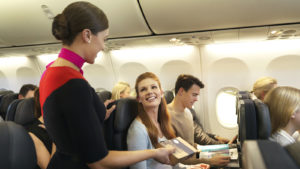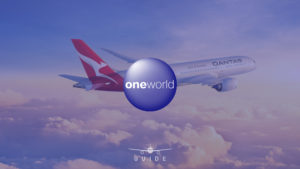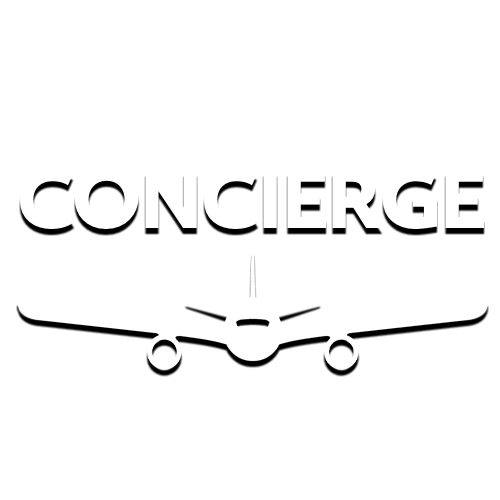The art of elite status, with Mark Ross-Smith
It seems there's a real strategy to status extensions and status matching...

What we'll be covering
Elite frequent flyer status has a real pull with those who’ve earned it. It can make people spend more to travel with one airline over another, or take a more expensive connecting journey when there’s a cheaper non-stop alternative available.
But having that status can have a more far-reaching influence, too. People engaged with an airline often also have a credit card attached to its frequent flyer program. They may also spend money – or spend more money – with that program’s other partners.
So what happens when a traveller is faced with the prospect of losing their hard-earned status? Status extensions have been a short-term measure, but what about the longer-term view? And what happens when somebody wants to change their allegiance from one airline to another?
For that matter, how would an airline like Rex launch a new frequent flyer program from scratch, and manage to poach frequent travellers from its rivals at the same time?
We recently caught up with Mark Ross-Smith, CEO at StatusMatch, to dive into this and more.
Why status extensions aren’t just for COVID recovery
During the height of COVID-19 travel restrictions, status extensions made perfect sense. They kept elites paired with their preferred airlines and hotel chains, ready for when the skies reopened.
But even with travel now booming again, Ross-Smith sees some logic in the announcements made by airlines this year.
‘If you can stop your best customers from flying, they’re not going to have a bad experience,’ he observes. ‘They’ve got Platinum in the bag for another year: they don’t need to do a status run. And therefore, they’re not subject to any delays, lost luggage, all (the other) sorts of issues that are happening right now.’
But of course, you want those high-value customers to still bring in fresh revenue for the airline – even if that’s not a plane ticket.
‘There’s a big overlap between people who have a co-brand credit card – or people who transfer points into the airline’s loyalty program – and people who have status. So some of an (airline’s) strategies I’ve always thought could be: extend status, they’ll keep the credit card. If you keep the credit card, the cash keeps rolling into the airline.’
But that can’t go on forever. ‘Looking globally, airlines don’t want to extend status anymore. They’ve realised that when you keep extending, you’re just kicking the problem down the road.’
‘People assume, you know what? I did my two flights … I kept Gold on merit. So what happens next year when they do those two fights and don’t requalify, because (the airline) isn’t giving it for free anymore? There’s a pretty hard conversation (to have) … and it creates a bit of ill will from the member.’
‘There’s gonna be a cliff at some point. And the longer airlines extend status, the bigger the cliff is that people will fall off.’
Moving beyond status extensions as Velocity competes against Qantas
We’ve recently seen Qantas roll out yet another status extension. Rather than recognising when people couldn’t travel, this one was packaged as an ‘apology’ for all the disruptions faced when people did fly. But so far, Virgin Australia hasn’t followed suit for Velocity members.
‘Virgin should not extend,’ Ross-Smith believes. ‘They need to be different. If I were Velocity, I wouldn’t just extend it for free. I’d get really creative about what it looks like.’
‘Virgin’s in this really unique position where they can do things with status that Qantas can’t, because Qantas is bound by a lot of oneworld regulation. So what (Qantas) can do, what they can’t do with status – Virgin doesn’t have that, right? Why not leverage that? Why not do something a little different, that Qantas could never, ever copy, because they’re not allowed to?’
While Ross-Smith doesn’t detail specifics of those oneworld rules, he is a former head of Malaysia Airlines’ Enrich program. Under alliance policy, member airlines can give away status, but each airline has a cap depending on the program’s size.
Point Hacks understands that extensions of existing status tiers aren’t subject to those oneworld limitations. This could explain Qantas’ willingness to roll out the red carpet for another year. But at some point, the good times do have to end.
‘Three years ago, if you had status, then you’ve still got it today for the same program. If you can’t retain status on merit in that timeframe with all the promotions out there – fly one flight, keep the status, transfer some points, keep your status – all these little things, sadly, you’re not a frequent flyer anymore.’
‘It’s time to cut (these members) loose. Airlines should go after people that are flying,’ Ross-Smith suggests. Enter, status matching.
So, when should airlines status match?
Given that many airlines can’t grant an infinite number of shiny status matches, it pays to be strategic when rolling out a status match offer. You don’t want members applying just because – but getting a status match shouldn’t be impossible, either.
‘I think there are three times airlines should be doing something,’ observes Ross-Smith.
The first ‘is 24/7. Every airline and hotel chain – and with a tiered program – should have some way to handle ad hoc requests. There are people that move cities, countries every single day of the year around the world.’
And of course, those who’ll keep travelling regularly and are relocating for work are more likely to be premium passengers: the exact travellers an airline would want to poach.
Secondly, ‘my slightly biased view is that every airline and hotel should run one big campaign a year. Just to get the people and lock ’em in. Because people change programs all the time. It’s not like everyone that’s Platinum today will have Platinum in five years from now. There’ll be a huge shift there.’
‘New people come in, some people drop out, it’s just the nature of the game. So I think airlines should be running something pretty big,’ if not every year, then every second year.
‘The other time you’d run one is if you’re launching into a new market or a new route.’
‘So let’s say Lufthansa launched flights to Australia. That would be a perfect opportunity for them to run a status match in Australia. They’re (already) going to fill the planes to Australia, but they’ve got to fill them coming back as well.’
Ross-Smith’s comments reflect that many airline routes do best when there’s strong demand from each end. This particularly helps to fill seats at different times of the year.
When shouldn’t airlines status match, then?
Some status matches are always going to be great value for a traveller. Getting elite status with an airline belonging to oneworld, Star Alliance or SkyTeam is going to provide usable benefits across the globe, regardless of which airline grants the match.
But these airlines have limitations, and plenty of carriers don’t belong to the big alliances anyway. Yet even for those that don’t, granting a status match might not always be the brightest idea.
‘I think airlines shouldn’t do it if they can’t provide a great customer experience,’ Ross-Smith believes.
For instance, granting status matches when an airline is struggling to serve its existing customers may not provide the desired effect. Nor would it help if the lounges are already full and heaving, and that newly-crowned elite member takes one look and walks out, never to return.
‘You’re going to turn away more business from a (badly-timed) offer and a (bad) customer experience than if you would (by not) having something there.’
Via his own StatusMatch platform, Ross-Smith is also mindful of filtering out fraud in status match applications.
It’s unfortunately common that many people will pretend to have a tier they’ve never actually achieved. Using technology, those applicants can be weeded out and excluded. Particularly for airlines that can only status match in limited numbers, this keeps those spaces available for genuine, proven travellers to jump across.
Another path to status: strategically giving it away
Outside of matching status from a direct competitor, some airlines and hotel chains use industry partners to help them reach frequent travellers.
For instance, it’s common for hotel loyalty programs to offer a status fast-track, or even status outright, for frequent flyers of a preferred airline. Hilton Honors and IHG have been doing this for years in granting easy elite status for Velocity Gold and Platinum frequent flyers.
Accor Live Limitless recently rolled out the welcome mat for eligible Qantas Frequent Flyer members, granting gratis Gold to anybody ‘not Bronze’. But do these kinds of deals make status too accessible to the masses, devaluing many of the benefits?
‘Elite status holders represent about 2-6% of (a typical airline’s) loyalty member database. A really good airline might have 10% of their database being elite. It’s a pretty small amount,’ Ross-Smith shares. But these travellers ‘represent 30-40% of total airline ticket revenue.’
As you might expect, those who spend big on flights often need a place to stay, which also means spending big on accommodation. And by having quick-and-easy status with a particular chain, that frequent traveller might now book with that chain more often.
Still, the number of actual elite members remains ‘really small, and in the big scheme hotels, elite status looks and feels a bit different in the economics as well. When you check into a hotel, you’ve really got no idea how many other people are Diamond. Whereas when you board that aircraft, you got a sense of it. You’re walking down, you see the bag tags…’
As long as hotel club lounges aren’t full and overflowing, or there isn’t a line out the door at breakfast, many hotels are simply happy to have the extra business that these tie-ups can bring.
When Rex (eventually) gets a frequent flyer program…
In Australian skies, Rex has some tough competition, facing off against the likes of Qantas and Virgin Australia. On the loyalty front, many frequent travellers already have their ‘preferred’ airline. As well, those looking to change allegiances have had several opportunities to do so over the last couple of years.
To date, Rex has been competing largely on price, without offering any sort of personal frequent flyer program. But given its position as a much smaller challenger, how should Rex handle the eventual launch of its own loyalty program?
‘Rex definitely needs to do something,’ feels Ross-Smith. ‘Are they gonna be in every Westfield,’ as Virgin Australia was when Velocity relaunched many years back? ‘I don’t know. It sounds expensive.’
But before Rex has mass market appeal among business travellers, ‘they just need the lounges’ – Rex currently has just three permanent locations. ‘There’s really a minimum requirement to get some business travellers away from Qantas and Virgin.’
Without the bells and whistles, ‘people are just not even going to consider it, right? They need priority boarding … they need (reward) seats. There’s just a “hygiene factor” that they have to get past, just to even get in the door, to get a look in with some of these people.’
‘So if we look at Virgin 11 years ago, I mean they checked all the boxes, right? They had three tiers, great; they had priority everything, great. They had some partners, great; they had some points … they had credit cards … they had everything there. So it was all primed for a big match. And it worked really well.’
‘Rex doesn’t appear to have that,’ Ross-Smith reflects. ‘So if they do launch a program soon, maybe the match looks and feels a little different.’
Reasons for Rex to status match
Elite frequent flyers would bring a new dimension to Rex’s customer base.
‘These people are generally not price sensitive. If, and I’m making these figures up, Sydney-Melbourne one-way is $200 on one airline and $230 on another, you’re just going to go with wherever you’ve got status.’
‘You’re going to think, I’ve got status, so I’m in the lounge for two hours. I get two drinks and that’s kind of worth $30 – you justify it in your head. So to get somebody to switch across to Rex, even if Rex is cheaper, there’s got to be something there.’
‘Most (elites) won’t fly a new airline unless they’ve got the status. So you need to give them the match before you’re gonna get anything in return.’ But before you can status match, you need elite tiers and a line-up of benefits that travellers expect. Of course, you can’t have that without a frequent flyer program..!
‘Status matching is probably the fastest, cheapest way to unhook someone from one brand to another,’ Ross-Smith believes. ‘In theory, it costs nothing or very little to the airline. So why not do it?’
In fact, airlines could even generate revenue from a status match deal itself. That’s by charging for the match, and earning money when the traveller flies as a result of that match.
‘If you pay $50-100 (for your status match), you’re thinking, I’ve gotta make use of this thing, right? Like, I’ll show them, I’m gonna fly Rex!‘
‘Whereas if it’s free, it’s like, well, I’ve got it in my back pocket. If I need to fly them, at least it’s not gonna be as (bad) as I thought it otherwise might be. So having a fee there (would have) a couple of big benefits’ for Rex.
Summing up
While Rex’s entry into the market has come with cheaper fares across the board, it’s still a tough sell for frequent flyers to sway from other airlines.
Missing out on points, status credits, and in many cases, lounge access, doesn’t really appeal to travellers who expect these with every journey. Nor does the prospect of lining up at the back of an Economy queue, when the traveller would get fast-track treatment when flying on their preferred airline.
Rex’s eventual launch of a frequent flyer program will be a difficult one to get right. Rex may be inclined to status-match just about anybody in order to get their business. But with a limited lounge network – and the lounges being incredibly small at that – welcoming too many tiered travellers could see them promptly packing their bags: and not board a Rex flight.
With travel restrictions behind us and domestic flying in full swing, all eyes are on Rex to make its move.
Feature image courtesy of Mark Ross-Smith.
Stay up to date with the latest news, reviews and guides by subscribing to Point Hacks’ email newsletter.





Community